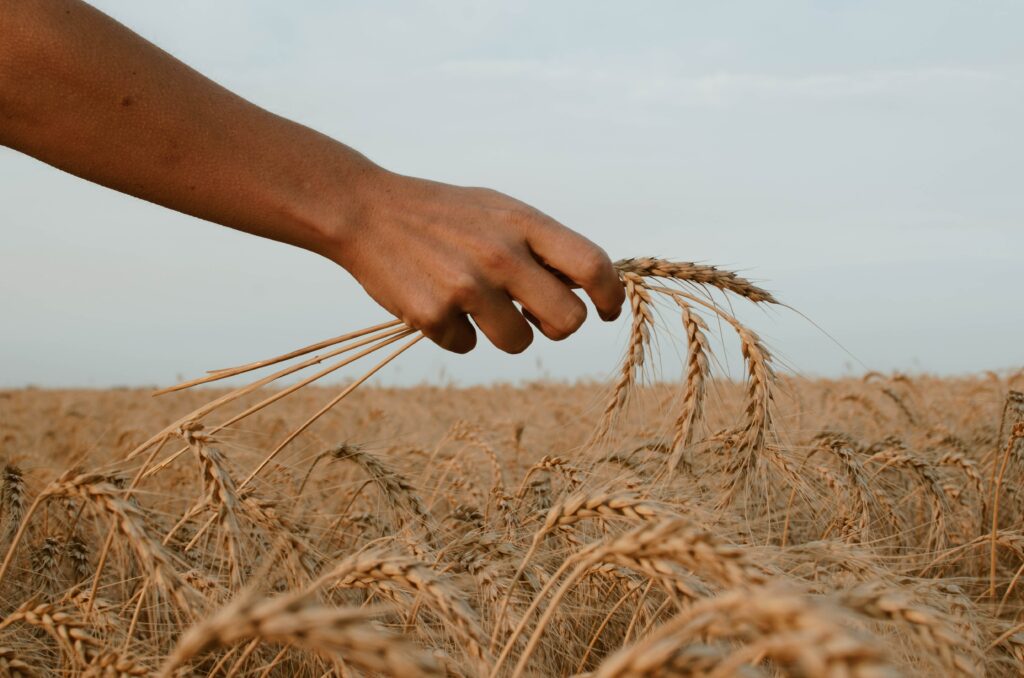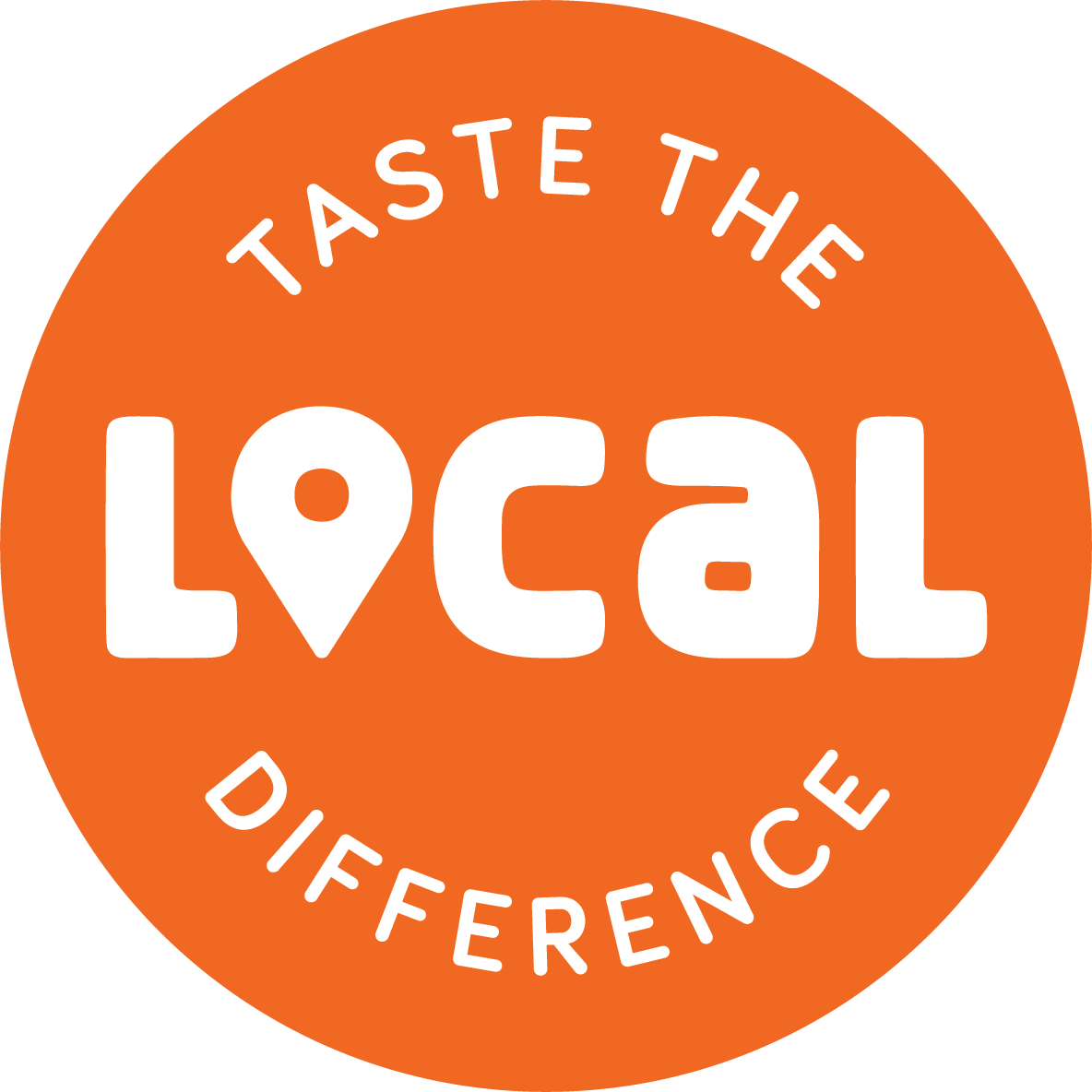What do heirloom corn varieties and wildflower honey from local farms have in common? They can both be found in locally produced bottles of quality spirits. For distillers, starting with local agriculture means making a truly Michigan product. This translates to bins of high-quality grain and other products being delivered to distillery doorsteps from small farms across the state.

Michigan Agriculture Brings Local Terroir
For many distillers, choosing local is about the flavor profile. “Just as with wine, the concept of terroir is essential in crafting spirits,” explains Sarah Anderson of Iron Fish Distillery. “Local grains capture the essence of Michigan’s varying climate, soil, and geography, resulting in spirits with a distinct and authentic flavor profile.” Grain fields in Thompsonville surround Iron Fish Distillery, as they harvest 80,000 of their total 700,000 pounds needed of grain for their spirits onsite. Among them is Hazlet Rye, a rare grain impacting the flavor of their Mad Angler Whiskey series, adding both spice and sweet notes.
Location isn’t always a factor in the decision-making behind local sourcing for distillates. In urban Royal Oak, far from sprawling acres of grain fields, Motor City Gas chooses Michigan grain products because of the ability to use organic heirloom grains, which in business co-owner Tonya Lockwood’s opinion, is far better than a commercial hybridized product.
Nick Lefebre of Ethanology in Elk Rapids would agree. He explains that his operation starts with what is available locally, and furthermore, this affects the year-to-year flavor. “There’s so many variables in the field and farming aspect, and we try to embrace that,” he says. “It’s still the same product, but there’s just subtle nuances and character.” Some years, this will mean a more floral note derived from the wheat harvest or a batch that has particular vanilla notes. For their distinctive Mel, a distillate made with local cherry blossom honey, Ethanology regulars are now accustomed to asking how each year’s honey tasting notes can affect the liquid in their glass.
Building Relationships with Farmers as Distillers
So what does starting out local mean, in reality? Distillers will tell you it’s about working with farmers who are passionate about their product. From cherries without pits to careful harvesting of grain, starting with community agriculture means distillers have a high-quality product to work with. “Working with small local farmers gives us access to fresher ingredients while enabling us to have more visibility and control over how they are growing, nurturing, and handling our grains for whiskey production,” explains Lockwood.
Anderson also believes that working with the right farm partner is a mutual learning experience, and can help spur innovation. Rather than the traditional focus on protein levels for feedlot grain, farming for distilleries means shifting priorities to a higher starch content. It also means experimenting with varietals like Bloody Butcher Corn to produce a unique, pronounced sweetness in their Heirloom Corn Bourbon, which is currently in the barrel room.
It’s not always easy. Lefebre says that he often walks the fields with farmer partners, and feels the pain equally when there isn’t enough water in the spring, or corn is planted a bit late. “We live these experiences with our farmers, sharing the same headaches,” he illustrates. “That, in essence, is what makes it different, right? There’s a true connection to that land.”
What are Michigan Distillers drinking this Craft Beverage Month?
Tonya Lockwood, Motor City Gas; Royal Oak Rye Whiskey Old-Fashioned
Sarah Anderson, Iron Fish Distillery; Toasted Godfather Old-Fashioned, a new ready-to-pour bottled cocktail
Nick Lefebre, Ethanology; The Old Old (pre-prohibition style Old Fashioned with sous-vide sugar and chilled cherrywood-smoked glass) with Hiems Winter Gin
This article was written in partnership with the Michigan Craft Beverage Council.
Claire Butler is the Content Strategy Specialist for Taste the Local Difference. Contact her at [email protected].
